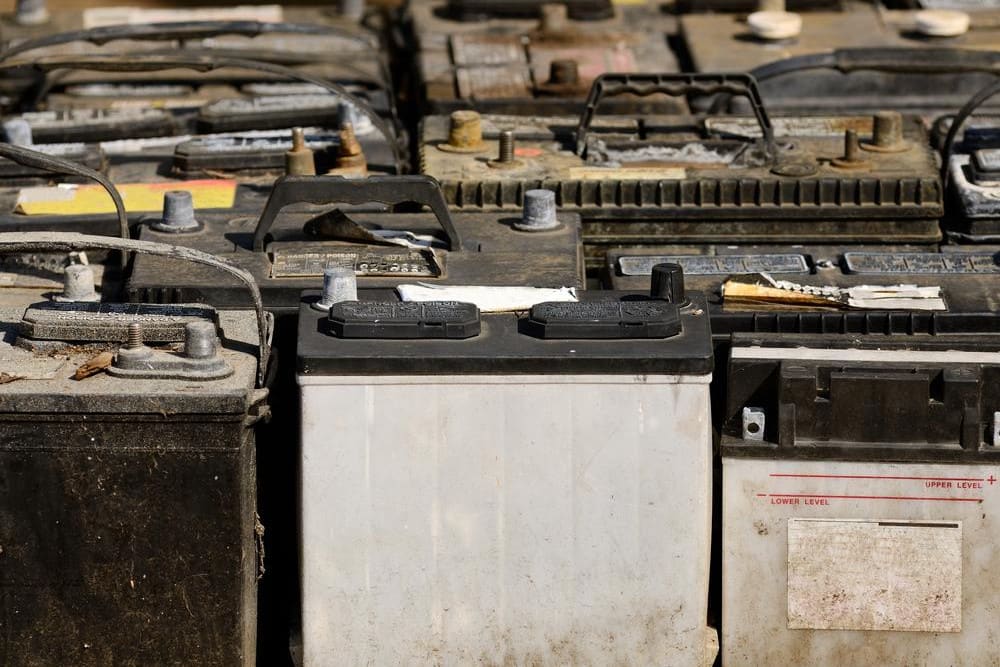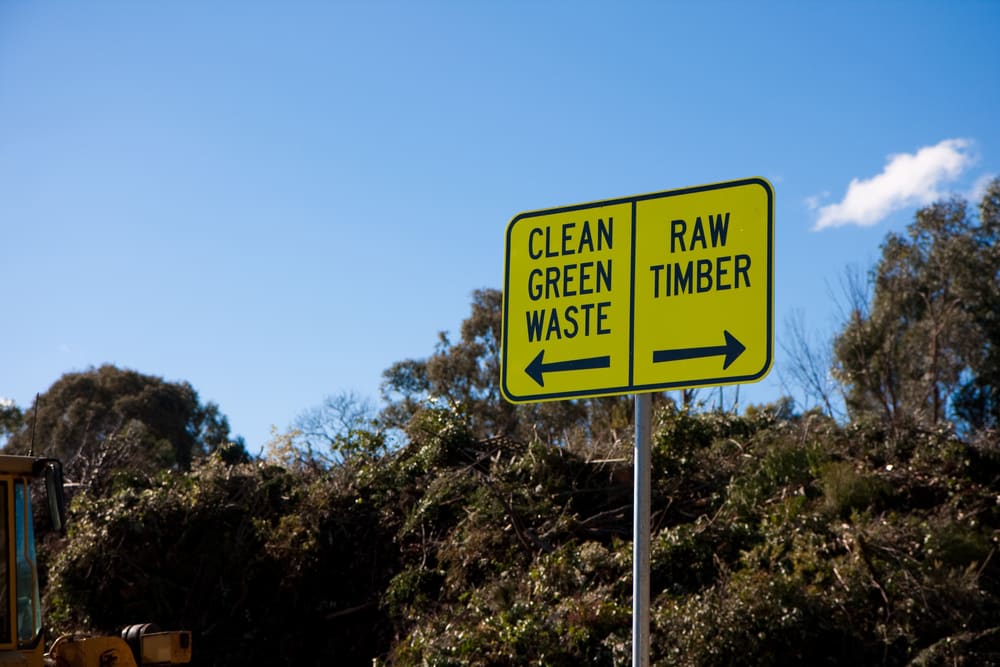

Car batteries - both lead-acid batteries and nickel-metal hydride (NiMH) batteries used for hybrid vehicles - eventually wear down and need replacing. But getting rid of an old car battery once you get a new one isn’t quite as simple as throwing the old one away in the trash. Because of the environmental health consequences, irresponsibly throwing a car battery in a trashcan or dumpster could subject you to serious fines or penalties.
Old car batteries - especially lead-acid batteries - contain a lot of toxic chemicals which, if let to simply rot in the ground, will contaminate the soil with lead, chemicals, acids, and non-biodegradable plastics.
Lead is a particularly harmful element that is not only highly toxic but also very difficult to clean up, and it can have lasting effects on the environment for many years after contamination. It is particularly worrisome for children in that it can cause devastating damage to developing nervous systems and irreparable brain damage.
Each lead-acid car battery contains about 20 pounds of lead - which is a lot, and is quite valuable as well. We need lead to produce wind turbines, cell phone towers, and of course, more car batteries. Because of the demand, lead-acid batteries can be recycled, and in some cases, you can get paid for your efforts.
Always remember to dispose of your car batteries responsibly, and never throw them in the trash or a dumpster. Follow the steps below for some ideas on how to properly dispose of your old car battery.
Part 1 of 7: How a battery is designed
When you car is running, your battery is receiving an electrical charge from the alternator that is stored as chemical energy. A car battery is a set of lead plates and lead dioxide plates in a plastic case. They are arranged in cells with one lead and one lead dioxide plate in each.
The battery is filled with a liquid that conducts the electrical energy that forms, known as an electrolyte. In most batteries, it is a strong sulfuric acid electrolyte.
A chemical reaction occurs between the lead plate, the lead dioxide plate, and the sulfuric acid where electrical energy is produced.
Typically each battery cell produces two volts of electricity, so in a standard 12-volt electrical system, there are six cells used in the battery.
When a battery is connected to a vehicle’s electrical system, it can provide years of service before needing to be replaced.
Part 2 of 7: How to tell when a car battery needs to be replaced
The average lifetime of a car battery is three to five years. That is just an average timeline, so your car battery could last a much longer time or even a shorter time. Several things can deem your battery faulty including:
- A cracked battery case
- A bulging, frozen battery
- A battery with the cell covers missing or broken
- A depleted battery that won’t accept a charge
If you find your battery is leaking fluid or is bulging from being frozen, it should be replaced immediately. If the covers on your battery that prevent fluid from spilling out are missing or damaged, discard the battery if replacement caps are not available from your local auto parts store.
If your battery is depleted, it can be recharged frequently and continue to be used. In some cases where the battery has been charged and still does not provide enough power to operate your car, it will need to be discarded. You can also bring your battery into many auto parts stores where they will perform a load test to check your battery’s condition.
- Tip: A load test checks the battery’s charge level as well as the amount of amperage it maintains while under load. Essentially it simulates the draw on your battery when you try to start your car.
If your battery is deemed faulty, is damaged, or fails a load test, it will need to be replaced.
Warning: Car batteries are filled with sulfuric acid which is highly corrosive. It also contains several lead plates which are not only harmful to the environment if disposed of improperly but are harmful to you if you come in contact with them directly. Do not attempt to open a car battery.
Warning: Always wear heavy protective gloves when handling car batteries.
Warning: If the internal fluid in the battery leaks onto your car’s upholstery or carpeting, it will cause discoloration and will eat into the surface before it becomes neutralized.
To properly dispose of a car battery entails bringing it to a location that can handle the car battery safely on your behalf.
Part 3 of 7: Bring the battery to a recycling depot
Step 1: Finding recycling location. Use your local phone book, or use an online search engine such as Google to find locations near you that accept car batteries for recycling.
Sometimes your local dump or department of sanitation will have a recycling program for hazardous or toxic materials, but call and make sure they take used batteries before bringing it in. You can’t simply throw the battery in your recycling bin.
If you do a quick search online, some recycling programs offer pick-up services for certain hazardous materials. AAA has a great system for recycling old batteries called the AAA Great Battery Roundup program.
If you have a NiMH battery for a hybrid vehicle, check the label on the battery or call the car manufacturer to learn about proper recycling methods. In either scenario, with a lead-acid battery or NiMH battery, you might get paid for recycling.
Step 2: Confirm that they take car batteries. Call ahead to confirm they accept car batteries before bringing it in.
Step 3: Secure the battery in your vehicle. Place the battery in your vehicle’s trunk, hatch, or on the floor on a safe, disposable item. Use a section of plywood, a heavy plastic lid, or a metal item like a garbage can lid. Make sure it won’t slide around to prevent the heavy battery from damaging your car or other items around it.
Step 4: Check in with attendant. When you arrive at the battery recycling depot, check in with the attendant on duty. Inform them you wish to dispose of a car battery.
Step 5: Have your battery recycled. Have the attendant safely remove the old car battery from the back of your vehicle.
- Tip: Some recyclers will pay you for the car battery. Check with the service you are using to determine if you can expect to receive anything for your old car battery.
Part 4 of 7: Take the battery to a parts store
Step 1: Take the battery to an auto shop or parts store. Probably the most common way to recycle a car battery is to take it to your local auto shop or auto parts store, where car batteries are sold.
When you purchase a new battery bring the old one with you.
Make sure it’s wrapped in thick plastic to safeguard it from leaking chemicals and contaminating the environment, and ruining your car’s interior in transport.
You will receive a “core charge,” and you may receive a substantial sum in return for bringing in a used car battery.
The best part about this method is that they completely take it off your hands so you no longer have to deal with it.
Part 5 of 7: Return it to the retailer
To replace the old car battery that you are discarding, you’ve likely had to purchase a new battery already. Check your receipt to see if there was a core charge assessed when you purchased the new battery.
- Tip: A core charge is assessed to on certain parts like batteries where the old part has value to the retailer, either to be recycled or to be rebuilt. Core charges are assessed on water pumps, alternators, starter motors, and several other automotive components.
Step 1: Bring in your battery. Bring the old battery to your battery retailer or auto parts store. Use safe handling procedures that include protective gloves.
Step 2: Provide receipt for core charge. If you’ve paid a core charge on your new battery, show your receipt to the counter personnel along with your old battery.
Step 3: Collect your core charge. Collect your core charge back, and leave the old battery with the counter staff.
Part 6 of 7: Sell it to a scrap metal depot
Scrap metal services or recyclers will buy the old car battery from you. This is especially helpful in situations where you’ve misplaced your receipt for your new battery and cannot collect your core charge back from the battery retailer.
Step 1: Research online. Go online and research scrap metal recyclers in your area.
If the recyclers have a website, check if there is a page that contains their current rates.
Call recyclers near you to check rates if they aren’t posted online.
Step 2: Select a service. Select a service that is near you that pays the best for your old car battery.
Step 3: Transport the battery. Transport the old car battery safely to your chosen scrap metal recycler, making sure not to use protective gloves when you handle it.
Step 4: Determine the location for battery drop-off. Approach a staff member at the scrap metal recycler and inform them you have a car battery to recycle. They will indicate the correct place to bring the battery and will pay you for it.
Part 7 of 7: Have the battery replaced
Step 1: Have a certified mobile mechanic replace your battery for you. A mechanic can come and take your old battery, installing a new one in its place.
This method is probably the most convenient option. You can have a certified mobile mechanic, such as one from YourMechanic, come to your home or office to replace your battery for you and dispose of the old one properly.
However you choose to dispose of your old car battery, make sure you do it properly with no risk of environmental or health repercussions. Use one of the methods above to ensure that your battery will be safely handled.




